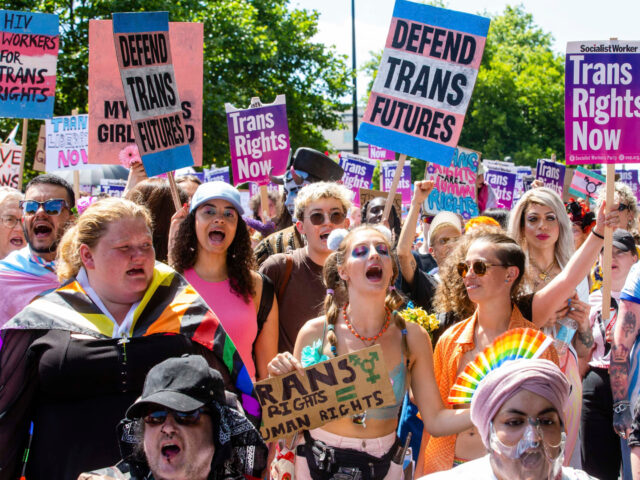A group of senior clinical psychologists have apologised for the role their profession played in the promotion of transgender ‘medical’ treatments to children in the UK following a damning report which found that such interventions were done on “shaky foundations”.
In a joint letter published by the left-wing Guardian’s sister paper The Observer, 16 unnamed “senior clinical psychologists”, including some who actually worked in the now-discredited Gender Identity Development Service (GIDS) clinics that prescribed hundreds of children life-altering puberty-blocking drugs, said that their profession led the way in pushing children into such a direction.
“These were psychology-led services. Whether intentionally or not, and many were doing their best in an impossible situation, it was clinical psychologists who promoted an ideology that was almost impossible to challenge,” they wrote.
“It is also our professional body, the British Psychological Society, that has failed (despite years of pressure) to produce guidelines for clinicians working with young people in this complex area; and that, forced into making an official response for the first time, now minimises its own role in events and calls for ‘more psychology’ as the answer. We are ashamed of the role psychology has played,” the group added.
They said that what occurred at GIDS clinics was a “multi-factorial systemic failure” but said that those within the psychology profession should be “fully examined” and held accountable for the role they played, noting that many “failed to carry out proper assessments of troubled young people, and thus put many on an ‘irreversible medical pathway’ that in most cases was inappropriate; and who failed in their most basic duty to keep proper records.”
The admission comes in the wake of a National Health Service-sponsored report from leading paediatrician Dr Hilary Cass, which argued that the NHS should no longer provide puberty-blocking drugs to children under the age of 18, given that many of that their prescription was “built on shaky foundations”.
The Cass report went on to say there is little evidence to support the so-called ‘gender affirming’ claim that hormone-altering treatments improved children’s mental health and that there has been little investigation into the potential ramifications such drugs have on the “cognitive and psychosexual development” of the children as they age.
Additionally, it argued that because many children will naturally grow past feelings of gender dysphoria “for most young people, a medical pathway will not be the best way to manage their gender-related distress”.
A preliminary version of the report forced the NHS to order the closure of the Tavistock Centre and its controversial Gender Identity Development Service clinic, which served as the nation’s top transgender clinic for children. Cass argued that the treatments offered by Tavistock were “not a safe or viable long-term option” for children.
The clinic has long faced criticism over the apparent lax standards used to determine if children were displaying signs of transgenderism, with former governor of the Tavistock and Portman NHS Foundation Trust, Dr David Bell, whistleblowing in 2022 to reveal that that staff would make such decisions based on flimsy evidence, such as if young girls failed to show interest in “pink ribbons and dollies“.
Last year, a re-examination of a 2011 study from University College London Hospitals (UCLH) and the Tavistock Centre — which claimed that there were no negative impacts of puberty blockers on the psychological function of 12 to 15-year-olds — overturned the initial claims, with University of Essex Professor of Psychology Susan McPherson and social scientist David Freedman finding instead that 34 per cent of children placed on puberty-blocking drugs saw their mental health “reliably deteriorate”.
While many in the United States continue to advocate for medical interventions for allegedly transgender children, there is a growing consensus in Europe against the practice, with progressive countries such as Denmark, Finland, Norway, Sweden, and the UK having all begun to restrict transgender treatments for children. Last month, a report commissioned by French senators asserted that providing children with life-altering transgender drugs will be remembered as one of the “greatest ethical scandals in medical history” and called for the practice to be restricted in France as well.

COMMENTS
Please let us know if you're having issues with commenting.